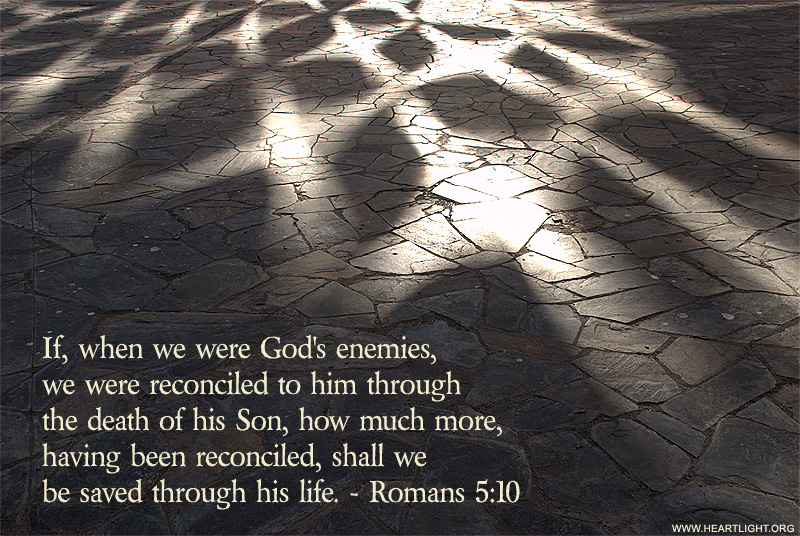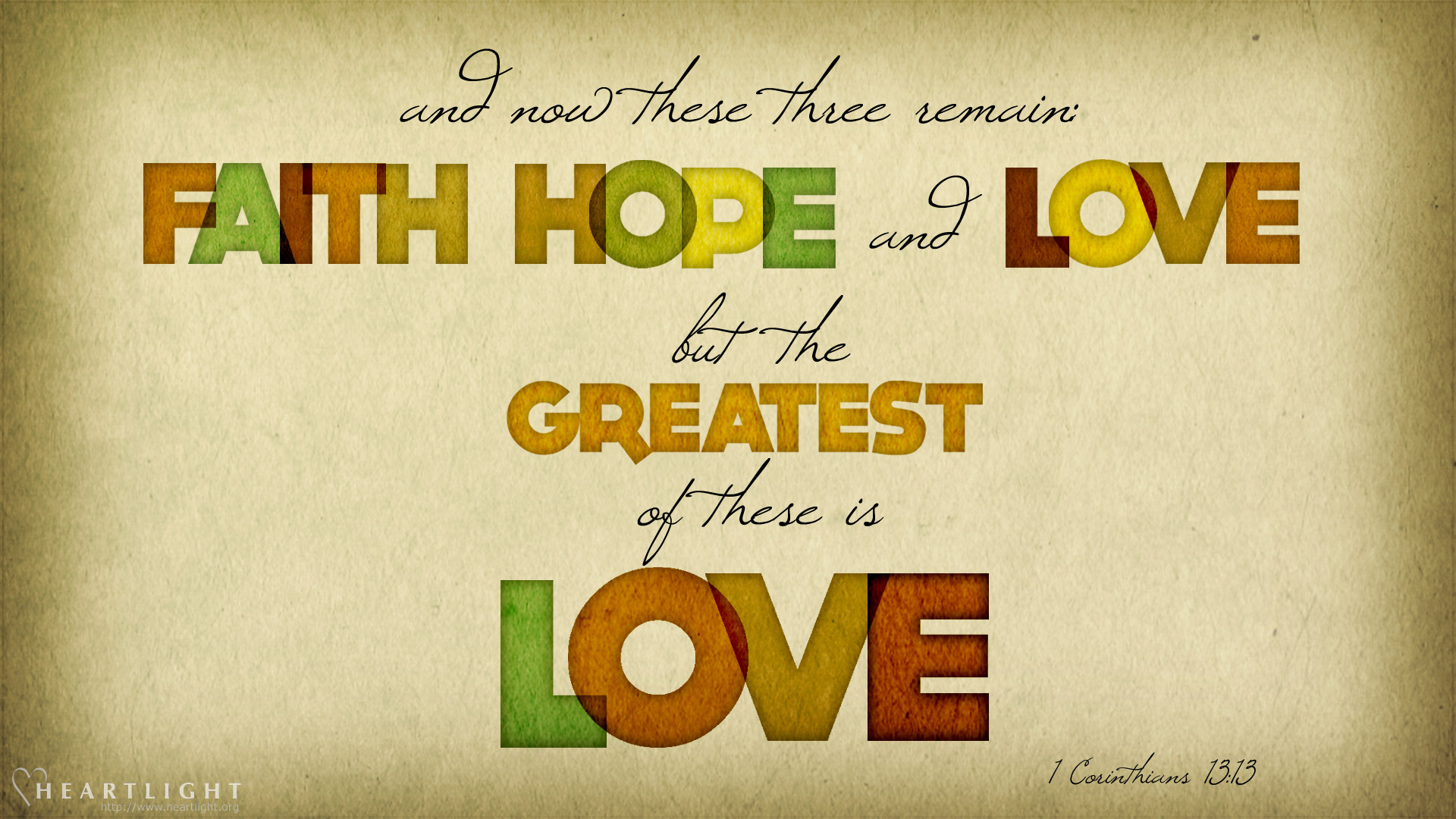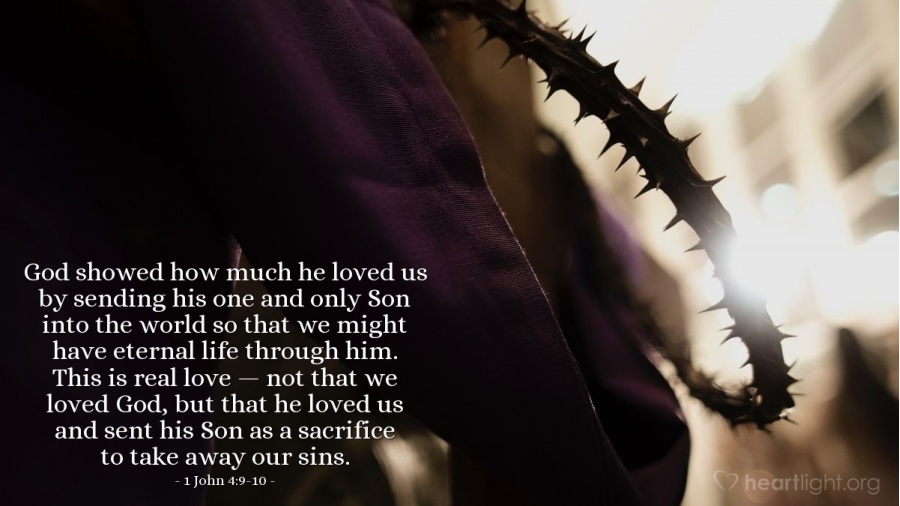- I started the book Love Does, by Bob Goff.
- On that same day, I heard an amazing sermon on the subject of love.
- I was re-reading all my marriage seminar material on Jesus' teaching on love.
The word “love” seems like such a subtle little four-letter message, but wow, the study of "love" is both deep and wide! There are different kinds of love, levels of love, and meanings of this profound and powerful little word. But, "love" is not a word that should be rolled out only at weddings, anniversaries, and marriage seminars. It needs to be put on and worn continually, like our wedding rings. We also need to grow in our understanding of what love means.
Jesus’ love commands are the starting point in the pre-marriage seminar that I present (Matthew 22:34-40). Jesus tells us how all-encompassing our love should be for God - “…with all your heart” (the emotional side of us), “with all of our soul” (the spiritual depths of our being), “and with all your mind” (with our thought and intellect). But, of course, Jesus goes on to say that we are to “love your neighbor as yourself.” The wise Mr. Rogers once defined the word “neighbor” as the people that we meet each day. That is a lot of love we need to spread around to other folks.
In this same week, as if a huge contrast to all of that on love, the gruesome Las Vegas events unfolded. I couldn’t help thinking, “Okay, how do I find all this love I’m supposed to give when the world is so devoid of it?”
We find it hard to exercise love when people cut us off in traffic, are rude at work, or ugly behind our backs. Even trying to be a loving person, I find myself failing my wife in the way I respond to her. Wow, loving my neighbor - and even the people that matter most dearly - can a challenge. Living a life of love is a tough pursuit in our world that seems devoid of God’s love.
I believe that we must go back and review how God loves us. Our Father’s love is incredible and our ultimate example of what love should be. Bob Goff, in his book Love Does, says that love is an action word, a verb. God loves and pursues us. Love does not stop at thoughts and feelings. There are multi-levels of meaning to the word “love,” but genuine love is demonstrated - love does something to show itself!
God doesn’t just say he loves; he does something to show that love.
For God so loved the world that he gave his one and only Son, that whoever believes in him shall not perish but have eternal life. For God did not send his Son into the world to condemn the world, but to save the world through him (John 3:16-17 - Underlining added for emphasis.).This is how we know what love is: Jesus Christ laid down his life for us. And we ought to lay down our lives for our brothers and sisters. If anyone has material possessions and sees a brother or sister in need but has no pity on them, how can the love of God be in that person? Dear children, let us not love with words or speech but with actions and in truth (1 John 3:16-18 - Underlining added for emphasis.).
This is how God showed his love among us: He sent his one and only Son into the world that we might live through him. This is love: not that we loved God, but that he loved us and sent his Son as an atoning sacrifice for our sins (1 John 4:9-10 - Underlining added for emphasis.).
How did God pursue us? The apostle Paul said it this way:
You see, at just the right time, when we were still powerless, Christ died for the ungodly. Very rarely will anyone die for a righteous person, though for a good person someone might possibly dare to die. But God demonstrates his own love for us in this: While we were still sinners, Christ died for us (Romans 5:6-8).
God pursued us through Christ. Christ gave himself up to be sacrificed for our sins when we were powerless to do anything about it. That’s some powerful, sacrificial, and awesome love.

Another way we can understand love is to pray for our love to increase. I know that asking our Father for our love to increase for others is one petition he longs to answer (Romans 5:5). We can also pray for others to grow in love. Paul prays for those he is leading to be growing in love:
And this is my prayer: that your love may abound more and more in knowledge and depth of insight… (Philippians 1:9).
When was the last time that you prayed for your own growth in love? Have you ever unselfishly prayed for another’s growth in love?
When bad events happen in this world, such as the Las Vegas tragedy, I wonder to myself, “Did anyone give the perpetrator of this horrible hate crime an example of true love?” Our love can make a huge difference in the lives others. Sure, some people can’t be reached by our love, but so many others can have their hearts changed by someone willing to truly love them. Yes, sometimes we can love others and get hurt by them. But, if we retreat and shrink our example to our community of safe friends who already love us, then we limit our example and do not follow the way of love demonstrated by God and Jesus.
Jesus reminded his closest followers of the absolute importance of loving others:
A new command I give you: Love one another. As I have loved you, so you must love one another. By this everyone will know that you are my disciples, if you love one another (John 13:34-35).
First, Jesus commands us to love each other. Second, our love for each other must be demonstrated just as his love for us was demonstrated. Third, the world will know us by our example of loving each other. We are his “light on the hill” displaying his love for us in our love for one another. Our love should be a bright example to others of Jesus’ love. It should be what differentiates Christians, Jesus’ disciples, from other faiths and from the darkness of our world reflected in the headlines.
You are the light of the world. A town built on a hill cannot be hidden. Neither do people light a lamp and put it under a bowl. Instead, they put it on its stand, and it gives light to everyone in the house. In the same way, let your light shine before others, that they may see your good deeds and glorify your Father in heaven (Matthew 5:14-16).
So, let’s let our “love light” shine for all to see: at home, at work, at play, in the marketplace, and on the road.
Beautiful words about love - like the great chapter in our Bibles on love (1 Corinthians 13:1-13) - should be spoken at more than just at weddings. Even when spoken frequently, love should be taken out and lived daily. Love should be the clothes we wear as followers of Jesus. Then, as we let our love light shine, that love can be seen in startling contrast to this dark world and our very sad headlines so filled with hate.
Paul taught new disciples to look to God and love as he did:
Now about your love for one another we do not need to write to you, for you yourselves have been taught by God to love each other. And in fact, you do love all of God’s family throughout Macedonia. Yet we urge you, brothers and sisters, to do so more and more… (1 Thessalonians 4:9-10).
So, let’s learn to love like God, using God’s definition to help us display his kind of love in our broken world:
“If I speak in the tongues of men or of angels, but do not have love, I am only a resounding gong or a clanging cymbal. If I have the gift of prophecy and can fathom all mysteries and all knowledge, and if I have a faith that can move mountains, but do not have love, I am nothing. If I give all I possess to the poor and give over my body to hardship that I may boast, but do not have love, I gain nothing.Love is patient, love is kind. It does not envy, it does not boast, it is not proud. It does not dishonor others, it is not self-seeking, it is not easily angered, it keeps no record of wrongs. Love does not delight in evil but rejoices with the truth. It always protects, always trusts, always hopes, always perseveres.
Love never fails. But where there are prophecies, they will cease; where there are tongues, they will be stilled; where there is knowledge, it will pass away. For we know in part and we prophesy in part, but when completeness comes, what is in part disappears. When I was a child, I talked like a child, I thought like a child, I reasoned like a child. When I became a man, I put the ways of childhood behind me. For now we see only a reflection as in a mirror; then we shall see face to face. Now I know in part; then I shall know fully, even as I am fully known.
And now these three remain: faith, hope and love. But the greatest of these is love (1 Corinthians 13:1-13).
When was the last time we compared our love to God's definition of what true love means?












Comments
Have thoughts on this article? Leave a comment